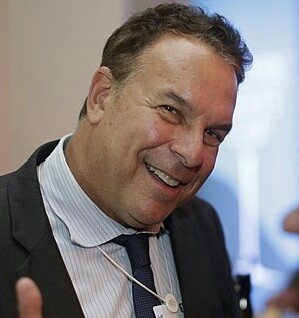A Quote by Aristotle Onassis
Related Quotes
Imagine you have six loans, small to huge. People want to close loans and because of that, they try to pay off the small loans, but that's not the right strategy. The right strategy, of course, is to pay the loan with the highest interest rate. People make this mistake and it costs them lots and lots of money, it's a very expensive mistake because interest rates accumulate and become very, very expensive very quickly.
Making loans and fighting poverty are normally two of the least glamorous pursuits around, but put the two together and you have an economic innovation that has become not just popular but downright chic. The innovation - microfinance - involves making small loans to poor entrepreneurs, usually in developing countries.
I believe the best way to help our small businesses is not only through small-business loans, which we have increased since I've been the president of the United States, but to unbundle government contracts so people have a chance to be able to bid and receive a contract to help get their business going.

































